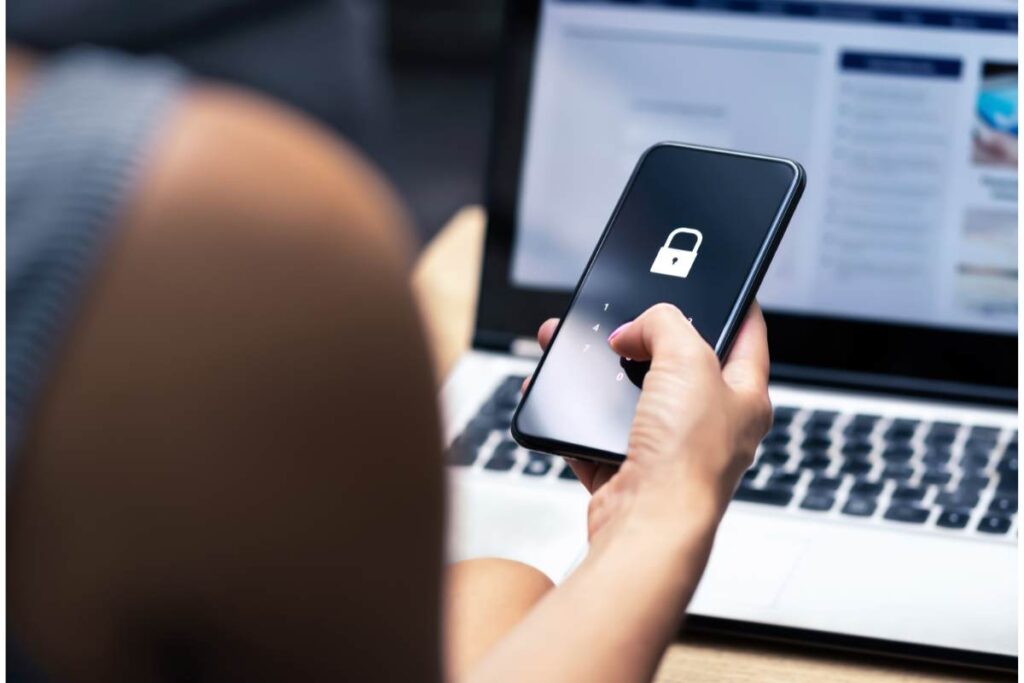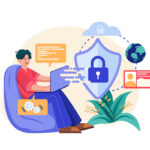Essential Cybersecurity Tips to Protect Your Online Privacy
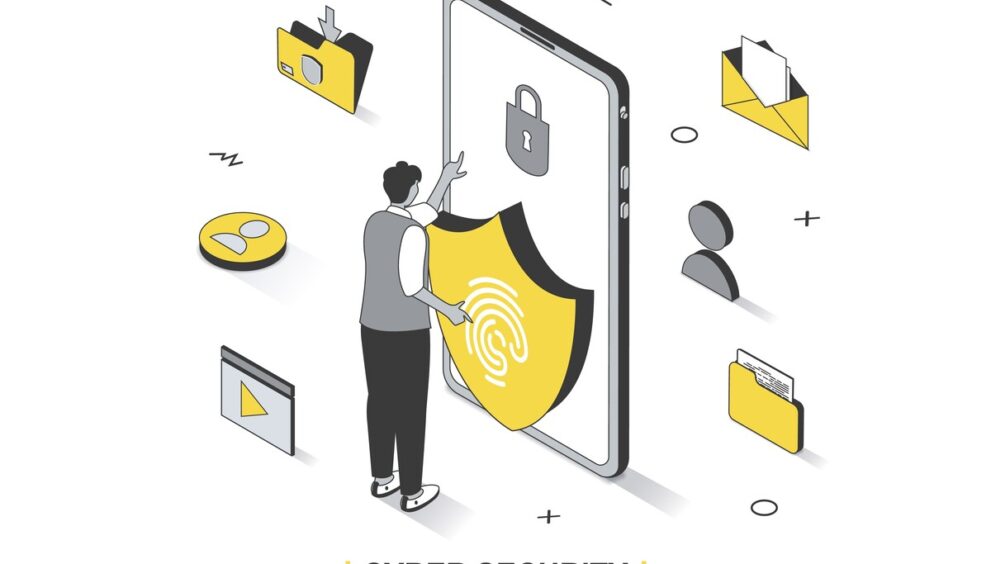
The demand for cybersecurity is growing as the globe gets more connected. Since so much of our lives and companies are performed online, it’s critical to understand the risks and take precautions.
The following advice will help you stay secure online:
1. Use secure passwords
A strong password has at least eight characters, combining uppercase and lowercase letters, numbers, and symbols. Avoid using words like your name or birthday that are easily guessed.
2. Maintain software updates.
Security solutions for recently found vulnerabilities are frequently included in software updates. You can defend yourself against the newest attacks by keeping your software updated.
3. Use caution when clicking.
Accidentally clicking on a bad link or downloading a virus is simple. Even if it appears to be coming from a reputable source, be cautious of what you click on.
4. Utilize security software.
A security suite can aid in defending you against phishing, malware, and virus threats. Choose a suite that offers firewall, anti-spam, and antivirus security.
5. Create a data backup.
You’ll want to have a backup of your data in case your computer gets hacked or infected with malware. Backups like a cloud storage service or external hard drives should be kept securely.
You can protect yourself from the numerous risks online by paying attention to these pointers. Keep an eye out and be careful!
Considering Cybersecurity
The internet has integrated itself seamlessly into our daily lives. We do everything from managing our finances to scheduling appointments to staying in touch with friends and family; we utilize it. Understandably, cybersecurity has become a crucial concern, given how much we rely on the internet.
Protecting computer systems and networks from theft or unauthorized access is the practice of cybersecurity. Several techniques can be used to accomplish this, including firewalls, encryption, and user authentication. Cybersecurity is crucial for individuals and enterprises to protect sensitive information and stop data breaches.
Cybersecurity is essential for a variety of reasons. First, as we just discussed, the internet has played a vital role in our lives. Accordingly, if our computer systems and networks are compromised, it could significantly affect our daily lives. Additionally, there is an increase in cybercrime. Attacks are becoming increasingly complex, and organizations and people are targeted more frequently. The price of a data breach might also be high. It can result in monetary losses, reputational harm to a company, and regulatory sanctions.
How, therefore, can you defend yourself against online crime? You can do a few important actions. Ensure you have secure passwords for each account before anything else. Second, make sure your operating system and software are current. Hackers frequently use security flaws addressed in more recent software versions. Use security software, such as antivirus or anti-malware, as your third step. These remedies can assist in identifying and thwarting harmful activity. Finally, exercise caution while sharing information online. Avoid posting anything online that you wouldn’t want to be seen by everyone, and exercise caution when clicking links or opening attachments in emails or social media communications.
Protect yourself from cybercrime by adhering to these straightforward tips. Although cybersecurity is a complicated subject, you may have a significant impact by following simple steps.
5 Crucial Tips for Cybersecurity
It is no secret that cyberattacks are growing more common in the digital realm. We are subjecting ourselves to many new threats as our lives become increasingly online. We might be the target of a cyber assault in various ways, from having our personal information compromised to having malware installed on our devices.
Because of this, it is more crucial than ever that we take the proper precautions to safeguard ourselves online.
Here are five crucial cybersecurity guidelines that every person should be aware of:
1. Employ secure passwords
Using strong passwords is one of the easiest and most efficient ways to safeguard your online accounts. A strong password should have a minimum of 8 characters and be made up of a combination of capital and lowercase letters, numbers, and symbols. Do not include information that might be easily guessed, such as your name, address, or birthdate.
2. Maintain software updates
Exploiting flaws in out-of-date software is one of the most popular methods that hackers access systems. Because of this, it’s crucial to maintain the most recent version of your operating system and all other software on your computer. Most software updates will come with security patches shielding you from the most recent dangers.
3. Avoid clicking any unidentified links or attachments.
Hackers frequently deceive people into clicking on harmful links or attachments to access systems. Emails and websites frequently contain these links and attachments. Do not click on links or attachments in emails from unknown senders or on dubious-looking websites.
4. Utilize a VPN.
A virtual private network, or VPN, is a terrific tool to secure online transactions further. A VPN makes it far more challenging for hackers to intercept and steal your data by encrypting all data exchanged between your device and the VPN server.
5. Be cautious with your internet posting
Be cautious while posting things online and on social media. Information that you post publicly can frequently be used to your advantage by hackers if you put your birthdate or address, for instance.
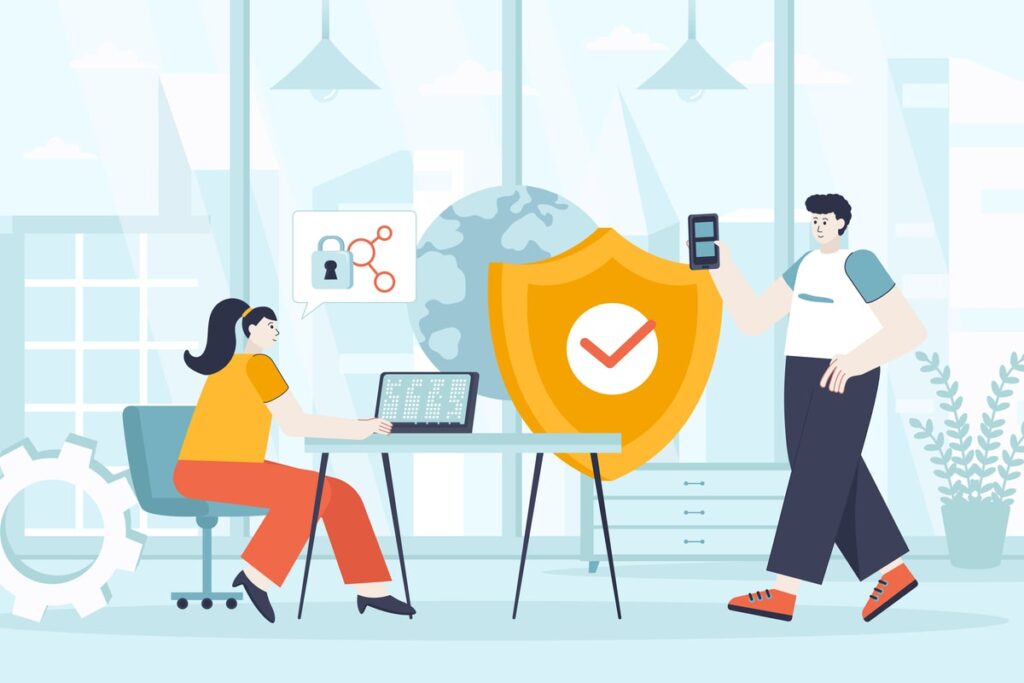
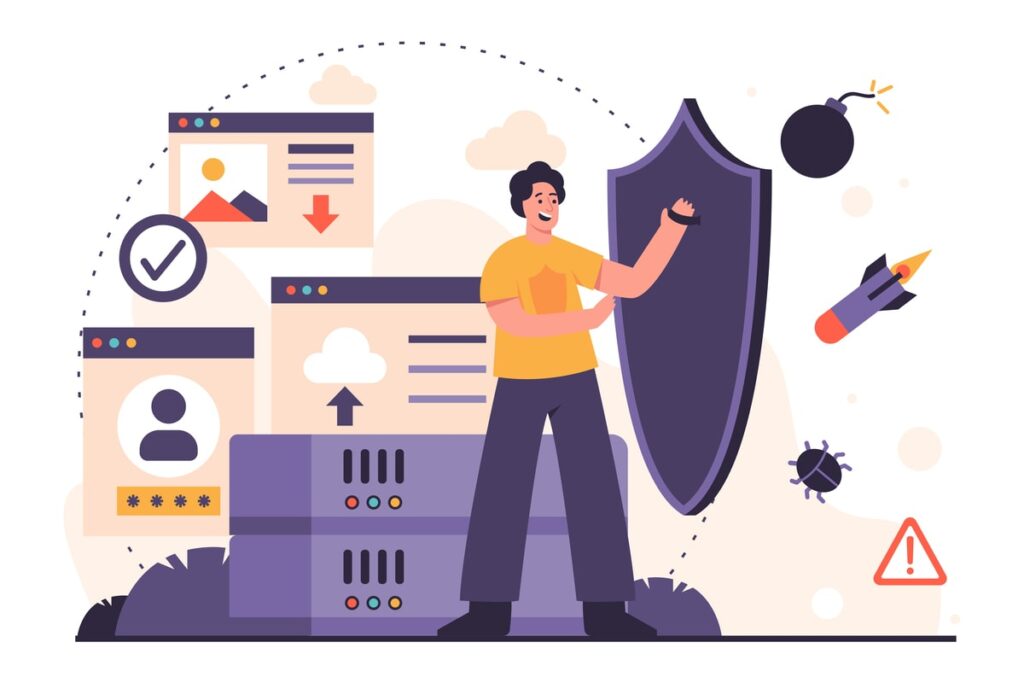
Conclusion
As we’ve seen, there are lots of cybersecurity recommendations to keep you and your loved ones secure online. We want to conclude by recommending that you: -Keep your computer and software up to date -Use strong passwords and never reuse them -Don’t click on links or attachments in email unless you are sure they are safe -Back up your data frequently -Be aware of phishing scams -Install a security solution and keep it up to date. These easy tips help safeguard yourself and your family from internet threats.



